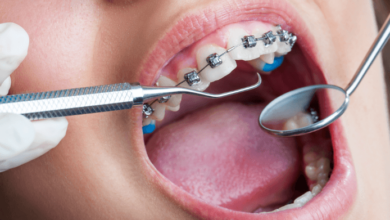IUI (Intrauterine Insemination) as explained by Dr. Hrishikesh Pai

Women and couples having trouble conceiving naturally use intrauterine insemination, often known as artificial insemination. Although the popularity of IUI has dropped substantially since the introduction of in-vitro fertilization, it is a common procedure even now.
In this article, Dr. Hrishikesh Pai, one of the best IVF doctors in Delhi, will explain IUI( Intrauterine Insemination).
He is the Founder and Director of the Bloom IVF Group which has eight IVF centres all over India. Dr. Pai is also associated with Lilavati Hospital at Mumbai, DY Patil Hospital at Navi Mumbai and Fortis Hospitals at New Delhi, Gurgaon and Mohali Chandigarh.
In his lifetime, he received 50+ awards for his contribution to the field of infertility treatment and Gynaecology. He is one of the best infertility doctors in India considering the pregnancy success rate of 40-50%.
Dr. Hrishikesh Pai is one of the best IVF doctors, with over 35 years of experience in gynecology.
ABOUT IUI (INTRAUTERINE INSEMINATION)
Dr. Hrishikesh Pai is the best IVF doctor in Delhi; you will find a high success rate as far as Assisted Reproductive Technology is concerned. He is the founder of the leading IVF institutions all over India and will discuss everything you need to know about IUI today (Intrauterine Insemination).
Many couples who want to start a family face difficulties conceiving due to various factors. It could be a result of:
- Infertility in both men and women.
- Some underlying conditions, such as thyroid illness or PCOD..
- Age
In these instances, the couples seek counsel from a gynecologist.
During the consultation, Dr. Pai, one of the best IVF Doctors in Delhi, will obtain the man’s and woman’s thorough medical histories.
It could include questions about current illnesses, medications, and heredity, among other things.
Dr. Pai will ask you to take certain tests so that they can determine the best treatment strategy for you.
Diagnostics tests you may have to undergo are:
- Both partners’ medical histories
- Both couples must undergo a physical examination.
- Prolactin
- Both partners’ thyroid function
- Anti-mullerian
- L.H.L.H. and Progesterone blood tests for males
- Testosterone
- F.S.H.F.S.H. (follicle-stimulating hormone) for females
- Examination of ovulation
- Examination of sperm
The doctor may decide to order additional tests based on the results, or if he has the required information to begin treatment, the treatment procedure will begin.
Who is eligible for IUI?
Heterosexual couples with an infertile or impotent male partner, homosexual couples, and single women benefit from this treatment.
What should you do to prepare for the procedure?
Time is critical because the fertilization window is only 12 hours after ovulation.
To identify the ovulation period, a woman must track her menstrual cycle and her basal body temperature and hormone levels. Blood tests, Ovulation Kits, and ultrasounds are some of the other ways to track ovulation.
The color and texture of the vaginal mucus, as well as the softness of the cervical nose, may be noted by some practitioners.
Medications to help with fertility:
Both male and female partners will be prescribed drugs to boost ovulation and sperm production in order to increase the probability of pregnancy.
Intrauterine Insemination procedures include:
Raw or frozen sperm specimens are used for insemination (more common). The sperm sample might be obtained from a frozen sperm bank or from a raw specimen after two to three days of abstinence (without a lubricant). And The sperm sample is cleaned. The sperm is then implanted into the woman’s uterus, vagina, or cervix.
The following are some of the most common IUI techniques:
- Intrauterine Insemination: Intrauterine insemination (IUI) — a type of artificial insemination — is a procedure for treating infertility. Intrauterine insemination (IUI) is a simple procedure that puts sperm directly inside your uterus, which helps healthy sperm get closer to your egg.
- Intrauterine tubo peritoneal Insemination: This method entails injecting cleaned sperm into the uterus and fallopian tubes in order to boost the chances of conception. The cervix is then constricted to avoid vaginal leaking.
- I.C.I: IntraCervical Insemination is a process that’s defined as when the sperm is placed directly inside the cervix, using a needless syringe.The sperm does not need to be washed, as with IUI, because the semen is not being directly placed inside the uterus. However, it may be pre-washed to increase the chances of success.
IUI carries the following risks:
It’s a relatively straightforward and risk-free operation with only a few drawbacks, such as:
- Multiple pregnancies: This is a rare occurrence, but it is conceivable when ovulation-inducing drugs are used.
- Infection: There’s a chance you’ll get a little infection following the procedure.
- Minor spotting: This happens when the catheter is placed in the uterus.
Results:
Before taking a pregnancy test, you must wait two weeks. Failure to do so may result in:
- False positive: When ovulation-inducing medicines like H.C.G. are present in your system, a false positive occurs. Even if you are not pregnant, it can imply pregnancy.
- False negative: Even if you are pregnant, your pregnancy hormone levels may not be detectable, resulting in a negative result.
Conclusion:
If IUI fails to produce favorable results, the next logical step is IVF, which offers up to an 80% probability of successful pregnancy with today’s technology.
So, my dear readers, don’t give up hope. Science has made the seemingly impossible feasible. It’ll only be a matter of time before you can hold your child in your arms.




